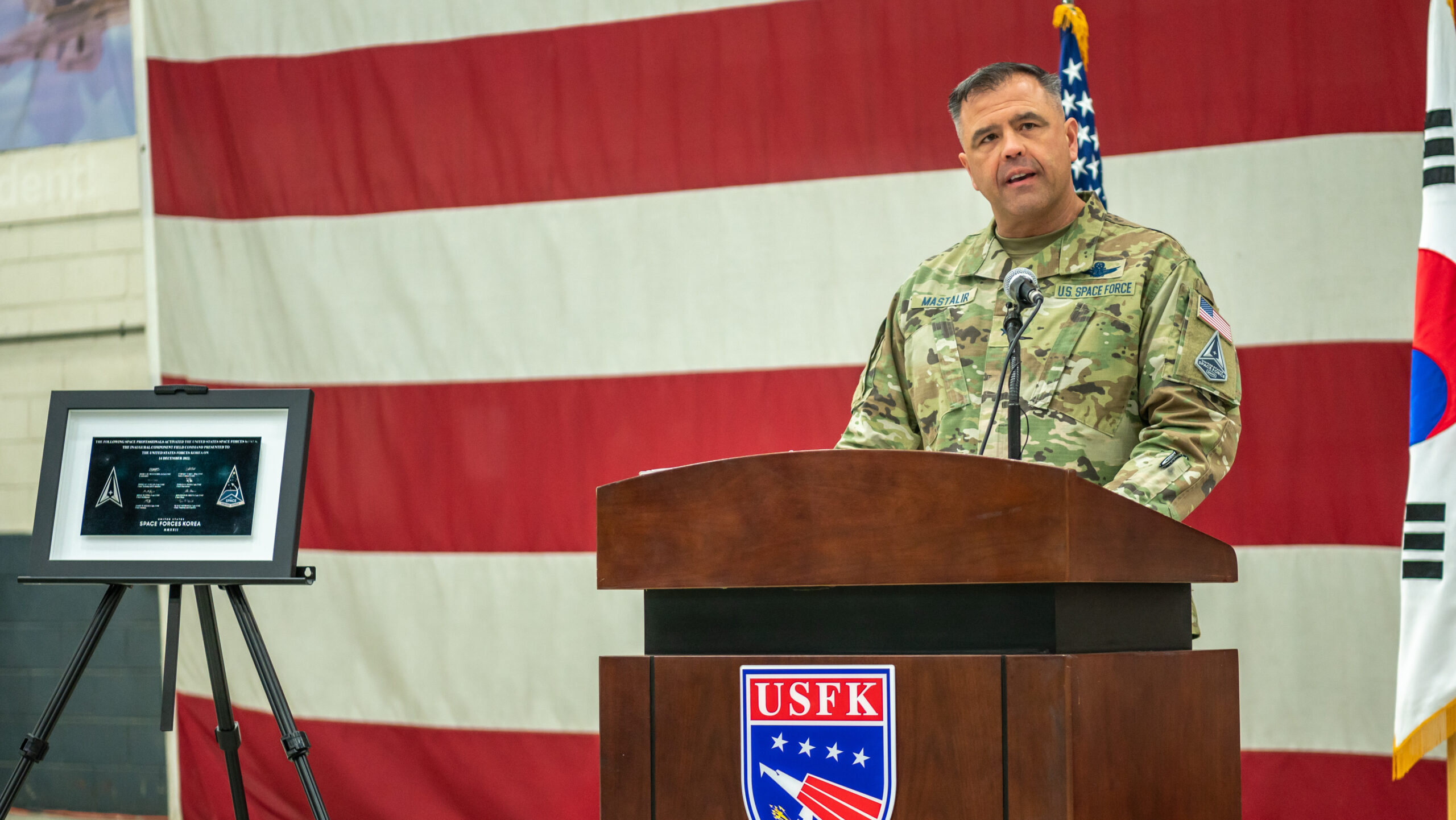
WASHINGTON — The US Space Force’s expanding footprint in the Indo-Pacific region will help allies like South Korea and Japan as they pursue “aggressive plans to develop military operations where the space domain is concerned,” while ensuring their capabilities will play nice with the US military’s, according to a senior US military official there.
“So, as they build their capabilities, having a component right there in country, working with them, having them exercise with us,” helps inform them about “how they might consider building those capabilities so that they can integrate across the joint force,” Brig. Gen. Anthony Mastalir, commander of US Space Forces — Indo-Pacific, told the Mitchell Institute today.
US Space Forces — Indo-Pacific was established as a component command under US Indo-Pacific Command (INDOPACOM) in November 2022, and the next month it stood up a subcomponent in Osan, Korea, creatively dubbed US Space Forces — Korea. Now Mastalir said it is his “intent to activate” a second subcomponent in Japan by “the end of the calendar year.”
“[T]here’s all kinds of excitement, both on the [Korean Peninsula] and in Japan, about what the Space Force can bring those allies,” he added.
When US Space Forces — Indo-Pacific was stood up, Space Force leaders explained that its job would be to serve as a single point of contact advising INDOPACOM about what space forces and capabilities are available not just from the service, but also other organizations such as the National Reconnaissance Office, US Space Command, commercial firms and US allies and partners — and in turn relay INDOPACOM needs back to the Space Force.
Mastalir said that one of INDOPACOM chief Adm. Samuel Paparo’s key goals, as well as that of his predecessor Adm. John Aquilino, is to move from a focus on “bilateral engagements and exercises to more multilateral” activities to strengthen deterrence.
“[D]emonstrating on a daily basis with your allies and partners that you’re prepared to fight and win a war, if you need to, is really the ultimate way to deter a war. So that’s really important,” he said.
In the space arena, Mastalir said, multilateral exercises are especially useful for helping individual allied nations understand where they can best contribute to a combined fight.
“[O]ur partner nations and allies are in different places in their own journey, and we can engage with those partners where they’re at, and really kind of bring them along,” he said.
Mastalir said that another key advantage of the Space Force having components in the various combatant commands is that embedded Guardians and their commanders can work directly with “terrestrial warfighters” coordinate defense of US space assets in the face of adversary attacks.
He noted that in the INDOPACOM region, Gen. Stephen Whiting, leader US Space Command, is “certainly is very focused on China’s counterspace capabilities that are designed to take out US satellites.”
Mastalir elaborated using a scenario of directed energy anti-satellite weapons, noting that exercises have shown the value of having Space Force commanders having “a voice at the table” in prioritizing a response and figuring out ways across domains to “neutralize” those targets.
“You really have to take into account all of the capabilities — whether it’s space or cyber or air, maritime, land — to understand what that looks like, and then the key is the timing and tempo of how you prosecute those operations,” he said. “And the adversary gets a vote.”